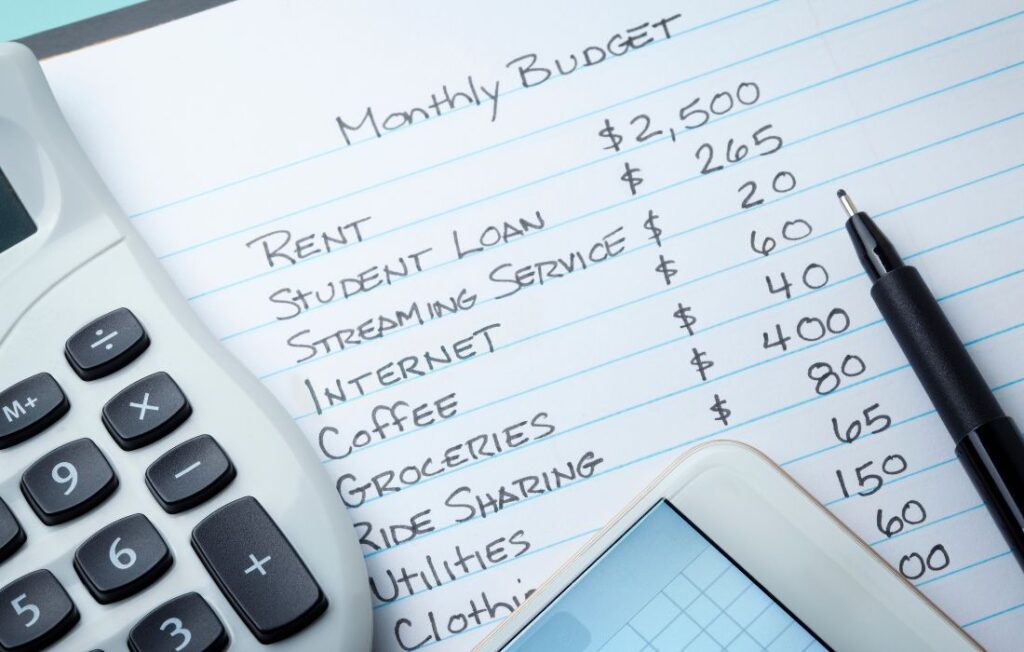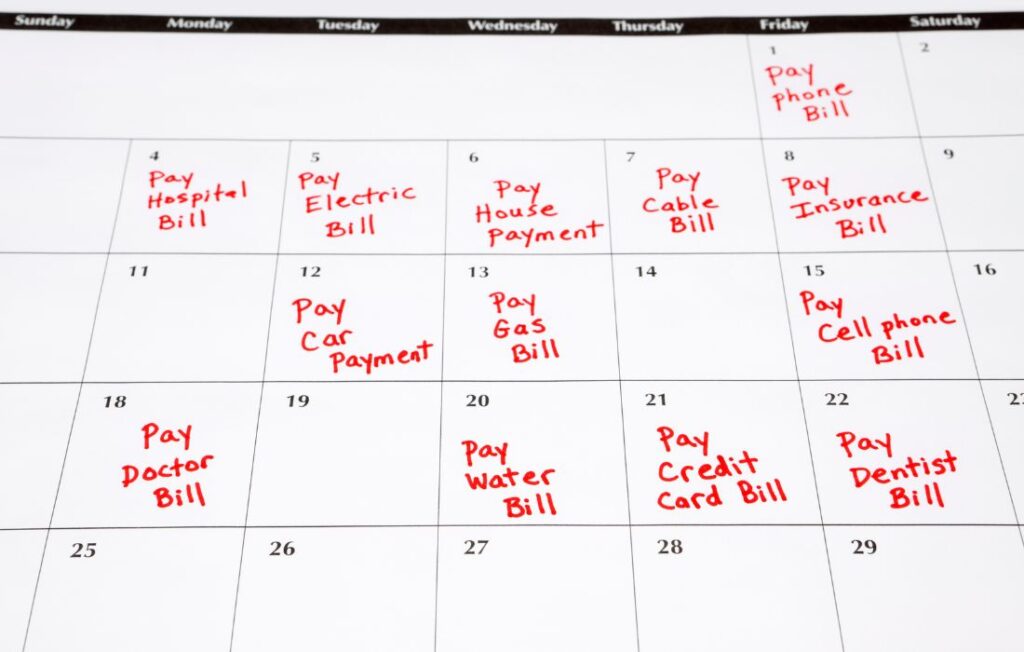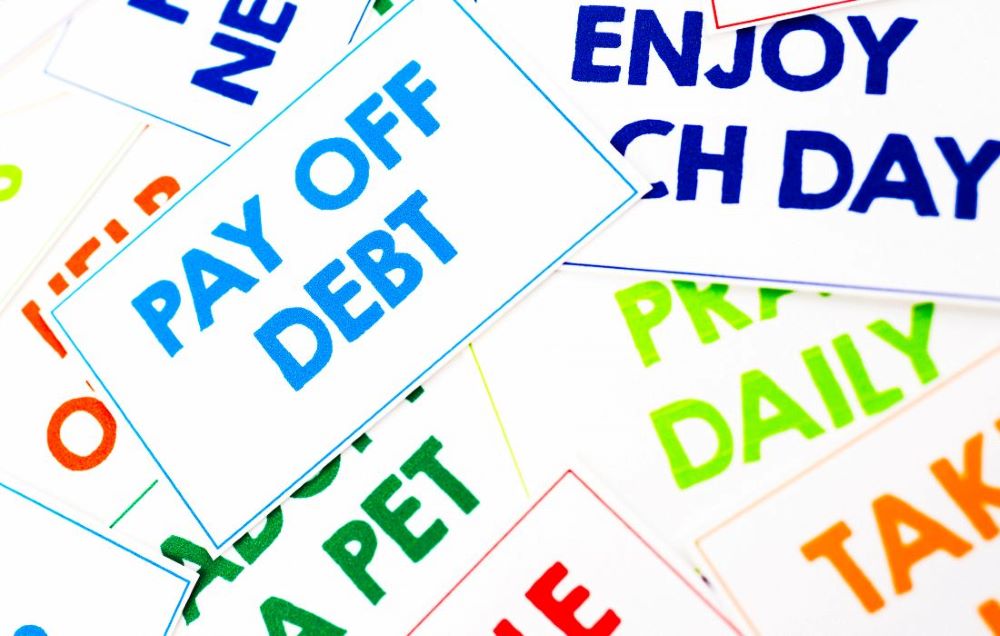Building a Financial Calendar for Money Management
Welcome back to Part 2 of our journey into mastering financial organization with a timeless financial calendar. In Part 1, we examined what a financial calendar for money management is and its crucial components. Now, let’s roll up our sleeves and walk through the practical steps of creating your own financial calendar, a tool that will not only organize but also empower your financial decision-making.
Benefits of a Financial Calendar: Streamlining Your Financial Management
A financial calendar is more than just an organizational tool; it’s a strategic partner in your financial journey. Here’s how it streamlines your approach to money management:
Efficient Financial Management:
- Scheduled Reminders and Cash Flow Planning: By marking bill due dates and renewal periods on your calendar, you avoid late fees and plan your cash flow more effectively. This dual benefit ensures you have the necessary funds when needed and keeps you on top of your financial obligations.
29 Ways to Protect Yourself During Cybersecurity Awareness Month

Goal-Oriented Financial Planning:
- Visualizing and Achieving Financial Goals: Having your savings goals and debt milestones visible on your calendar keeps them in focus, aligning your daily spending with these objectives. Regularly seeing and tracking these goals motivates you to stay on course and provides a sense of achievement as you reach each milestone.
Long-Term Financial Perspective:
- Big Picture Planning and Adaptability: The calendar offers a year-long view of your finances, aiding in planning for significant expenses and life changes. Whether it’s adjusting for retirement, a new job, or shifts in family dynamics, your financial calendar adapts, ensuring your financial plan remains relevant and forward-looking.
Enhanced Financial Awareness:
- Regular Reviews for Informed Decision Making: Monthly check-ins with your financial calendar enhance your awareness and control over your finances. This comprehensive view supports well-informed decisions about making a significant purchase or adjusting your savings strategy.
Daily Money Manager: Your Path to Financial Well-being

Complementing Traditional Budgeting:
- Integrative Approach for Holistic Management: Integrating your monthly budget with your financial calendar creates a powerful collaboration. This approach ensures that your immediate financial allocations align with your broader financial goals, promoting a more holistic approach to money management.
Stress Reduction and Financial Clarity:
- Proactive Planning for Peace of Mind: Anticipating and planning for financial events with your calendar can significantly reduce the stress often associated with money management. The clarity and control it provides instill confidence in your financial decisions.
Beyond Mint: Top Apps for Smart Financial Planning
Creating Your Financial Calendar: A Step-by-Step Guide
Crafting a financial calendar for money management needs to be tailored to your needs can transform how you manage your finances. Here’s a step-by-step guide to setting up your financial calendar for maximum effectiveness.
Step 1: Gather Your Financial Information
- Compile Key Dates: Collect all relevant financial dates, including bill due dates, paydays, tax deadlines, insurance renewals, and other recurring financial events.
- Financial Goals: Jot down your short-term and long-term financial goals, such as saving for a vacation, paying off debt, or building an emergency fund.

Step 2: Choose Your Calendar Tool
- Digital vs. Physical: Decide whether a digital calendar (like Google Calendar or a financial management app) or physical planner works best for you. Digital calendars offer reminders and can be easily updated, while physical planners offer the tangible benefit of writing by hand, which many find helpful for memory and reflection.
- Integration Capabilities: If using a digital tool, look for one that can integrate with your other financial tools or apps for seamless management, like Empower or Tiller.
Step 3: Marking Key Financial Dates
- Input Recurring Payments: Enter all regular payments like mortgages, utilities, and subscriptions. Include income dates like paydays or pension disbursements.
- Annual and Semi-Annual Events: Add less frequent events such as tax deadlines, insurance renewals, and membership fees.
Step 4: Incorporating Financial Goals
- Set Milestones: Break down your financial goals into achievable milestones and add these to your calendar. For example, if you aim to save a certain amount by year-end, schedule regular check-in points to track your progress.
- Visual Reminders: Use color coding or special symbols to make these goals stand out on your calendar.

Step 5: Regular Review and Update
- Monthly Check-Ins: Dedicate time each month to review your calendar. This helps you stay on track with your goals and adjust for changes.
- Adjust as Needed: Life is unpredictable. Be prepared to update your financial calendar as your financial situation evolves throughout the year.
Step 6: Integrating with Your Budget
- Link with Monthly Budget: Ensure your monthly budget aligns with your calendar’s financial events and goals. This integration provides a comprehensive view of your finances.
- Consistency is Key: Regularly updating your budget and financial calendar ensures consistency and helps you stay on top of your finances.
If the idea of setting up a year-long financial calendar seems daunting, remember it’s all about taking that first step. Begin with a shorter timeframe, such as a month or a quarter, and gradually expand as you gain confidence. This approach helps you ease into the process without feeling overwhelmed.
Your financial calendar is a living document, evolving as your life does. By taking the time to set it up and maintain it, you’re not just organizing your finances. You’re taking a proactive step towards financial empowerment and peace of mind.
Join our community today!
Get our newsletter filled with practical tips on personal finance, organizing, and productivity. Plus, reviews of our favorite podcasts and books. Subscribe Now for your gateway to a more organized and financially savvy lifestyle.









